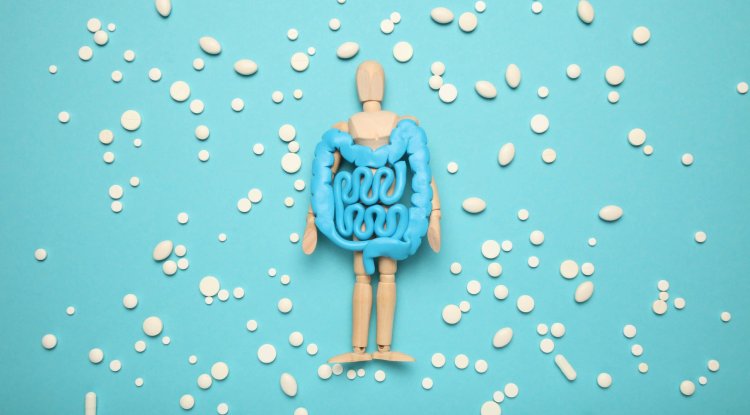11 WAYS TO INCREASE SEROTONIN - THE HAPPINESS HOROMONE
Happiness, laughter, contentment, and inner peace are the result of the happiness hormone (serotonin) that we encounter every day in various situations such as hanging out with friends, listening to music, watching comedy series, practicing meditation, or after exercise and intimate relationships.

Happiness, laughter, contentment, and inner peace are the result of the happiness hormone (serotonin) that we encounter every day in various situations such as hanging out with friends, listening to music, watching comedy series, practicing meditation, or after exercise and intimate relationships.
The feelings we experience are chemical reactions that take place inside our bodies.
Every emotion we feel is the result of the release of certain hormones. Some hormones are responsible for good and positive feelings, some affect the onset of negative feelings, and some in turn occur when we fall in love.
Happiness is affected by hormones of happiness and good mood and neurotransmitters, which are:
- endocannabinoids,
- dopamine,
- oxytocin,
- endorphins,
- GABA neurotransmitter,
- serotonin,
- adrenaline.
Low levels of serotonin negatively affect several fields - from appetite to sleep cycles, memory, sex drive, and of course mood. We bring you 11 useful and easy-to-do ways to improve your mental health, concentration, and motivation by increasing the level of this neurotransmitter.
1. Eat more tryptophan.
First, you need to know what tryptophan is. It is an amino acid that is key to the production of serotonin, so if you increase its intake in the diet, you will quickly be happier. Some of the foods that are best to eat are meat, eggs, and dairy products, don’t worry if you’re vegan, grains and a variety of nuts are also full of tryptophan, so include them in your diet.
2. Schedule a massage.
You may already have the impression that massage affects mood, but you probably don't know that it's not just about breaking muscle tension. Research on how massage changes the body's chemical composition shows that serotonin levels are often highest after treatment, probably due to a 30% reduction in cortisol. When too much of this hormone circulates in your body, your brain is actually unable to make the right amount of serotonin.
3. Increase your vitamin B intake.
Each vitamin from the B family helps you feel good and plays a significant role in maintaining the line, but there are 2 that are especially useful when it comes to serotonin production: vitamins B12 and B6. There is even evidence that the intake of vitamin B supplements helps treat depression in the elderly. For most people, a useful dose of 50 to 100 mg per day is useful but check with your doctor.
4. Soak up the sun.
Whenever you are out in the sun, you speed up the production of serotonin in your body. That's how it is even when it's cloudy, so there's no excuse to stay home all winter! Try to spend at least 20-30 minutes outside every morning or afternoon: a great opportunity to go to a particularly nice place or just think while listening to your favorite music.
5. Add more magnesium to your diet.
You may not think about magnesium at all, but research shows that it is possible that almost 75% of Americans are deficient in this mineral in the body. It is not only responsible for the effect on the balance of serotonin, but also helps in controlling blood pressure and regulating nerve function.
In supplement form, it has been shown to help some patients recover from major depressive episodes. To add it to your diet, eat foods such as fish, bananas, and legumes.
6. Find ways to be more positive.
The increase in serotonin levels in the brain does not depend only on external factors such as diet and the environment; Psychological studies show that you can also influence the production of neurotransmitters by changing your attitude towards life. Pay attention to exactly why you feel good in your skin and in the world around you, and then you do it! Good examples would be hanging out with the people you love, taking an hour a day for some inspiring hobby, deliberately imagining a happy event, and writing in a Thanksgiving diary.
7. Reduce your sugar intake.
One of the most common symptoms of low serotonin levels is the need for sweets: this is because insulin is necessary to create one of the components of serotonin. Unfortunately, this increased sugar intake has the opposite effect, usually leading to a sudden drop in mood (clashing with the positive effect of the neurotransmitter that has just been made in your body). Protect yourself from diseases such as diabetes and heart disease, and invest in healthier ways to increase serotonin.
8. Meditate.
Yes, we know, meditation occurs in every list of well-being! However, there are well-grounded reasons for this: meditation can really benefit almost any area of your life. Serotonin levels increase in response to any type of meditation that helps create the 5-HIAA acid needed by the brain to produce serotonin. As a bonus, meditation denies the influence of stress hormones, which not only makes you happier but also reduces unnecessary inflammatory processes in the body.
9. Exercise more often.
You will already be moving a little more if you accept the previous advice on spending time outside in the sun, but look carefully at what you do during the week and see if you have extra time for additional training. Anything that boosts your heart rate will also raise your serotonin levels and because of the accompanying endorphins, you will also feel great. Think a little better and find the types of exercises that will actually be fun for you, for example, replace running on a treadmill with a real run in the park, attend dance classes, or learn water aerobics.
10. Get more vitamin C.
Although vitamin C is not as important for serotonin production as vitamin B, there is recent research showing that vitamin C plays a role in mood. For example, some studies indicate that vitamin C has natural antidepressant properties, and one group of scientists even found that people who took more of this vitamin felt happier within just a week. This is not only related to serotonin but also to the role that vitamin C plays in the production of other neurotransmitters such as dopamine and epinephrine, both of which make us feel good. Oranges, peppers, and tomatoes are great choices if you want more vitamin C in your diet.
11. Take care of yourself to reduce stress levels.
Finally, it has probably been noticed that ways to regulate cortisol have run through this text several times, primarily because cortisol prevents serotonin from being produced. This means that anything you can do to reduce stress levels has a positive effect on the amount of serotonin in your brain.
If you are the type of person who puts others first, takes on too many responsibilities, and works constantly, start looking for ways to make taking care of yourself a priority and the increase in serotonin will happen on its own. Taking care of yourself means different things for different people but you can always come up with good ideas by making a list of 10 things that make you feel really happy!
By: Amber V.




























